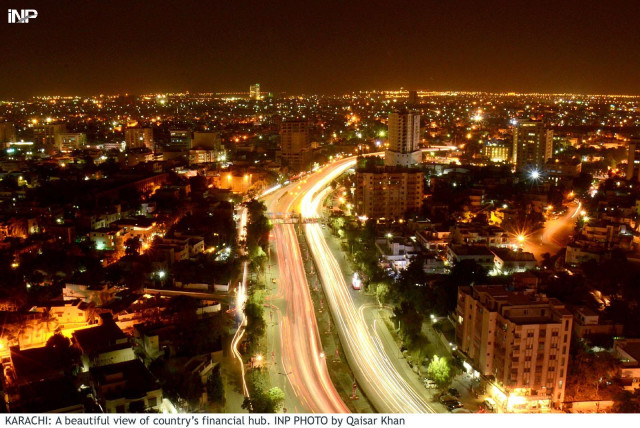Pakistan capable of tackling its economic problems
Bring back the money stashed in Swiss banks and it would be a win-win situation

PHOTO: INP
In my article dated July 31, 2017, I reported a fact from the speech of former finance minister that Pakistanis have $200 billion in Swiss banks.
This may seem like too big a number. But this is what the finance ministry states when it looks to address the issue and hence, would be used for the purpose of my argument.
Minister says economy is back on track
I also proposed that if the business community brings back these dollars it would be a win-win situation for all. Our dollar deficit will subside and the businessmen will make most profits as Pakistan will grow faster than most economies and will offer best returns on investments. In due course of time, the business community has also proposed a similar solution. According to the Pakistan Business Council (PBC), Pakistanis have wealth of around $150 billion in foreign countries. This figure is less by $50 billion from the figure presented above. Now, they are claiming that out of $150 billion of Pakistani wealth stashed abroad, they can bring back at least $20 billion, provided that an amnesty scheme is designed for them.
Just to share a statistical observation, we must bear in mind that our external debt is around $80 billion only and the business community has $150 billion parked abroad. This means that we Pakistanis are capable of solving this problem on our own. Things are not as gloomy as they seem. This proposal of the business community has been reported in the press and no one is sure of its future. But one cannot deny the apparent attractiveness of this proposal. The policymakers must go through a rigorous cost and benefit analysis before taking any decision regarding such an apparently attractive solution.
However, we must realise that this incoming wealth would have purposes beyond the current dollar problem only. If this wealth is not channelled properly, the problem will recur in the future. But if we manage to develop our economic potential through these inflows, we can get out of this vicious cycle of trade/current account deficit once and for all.
This beneficial outcome will depend on our investment priorities that we will set for this wealth. The most popular investment avenues in Pakistan are real estate and the stock exchange. They have offered returns with much less effort in the past. Therefore, natural direction of this wealth will be towards these two avenues.
However, if this is the case we will be standing at this same juncture few months or maybe few years down the road. What we really need is to take a long-term approach. We need to invest and we need to invest in productive avenues that create exports, jobs and economic activity. This incoming wealth should be converted into a vaccine against financial instability and imbalances in the balance of payments. It should not be a tranquiliser for us to make us forget our problems for some time.
It has been reported that the business community (PBC) has shown interest in channelising these investments towards productive sectors like LNG etc. One cannot comment on the feasibility of this proposition but one can definitely suggest that productive, employment generating and export enhancing avenues of investment must be given a priority.
Most of Pakistan’s recent growth is contributed by the service sector and our industrial growth has remained dismal. In Karachi, industrial property in Port Qasim is cheaper than residential properties in most areas. Unbelievable and ironic isn’t it?
Economy needs structural change, but transition is painful
But it is the industry that produces export goods. It is the industry that creates jobs and cascades the fruits of growth to the downtrodden in the economy. The government has missed all its targets regarding industrial growth in recent times. This makes a strong case for the industry to be on top of the priority list. Pakistan’s dollar crisis is an urgent issue but we are more than capable of handling it ourselves. Dwindling remittances have made circumstances rather unusual for us; however, the business community has proposed an unprecedented solution.
Now it is up to our policy makers to make the best use of this opportunity to bring back our wealth and to channel it into productive/industrial growth
The author is a corporate banker and teaches economics
Published in The Express Tribune, September 11th, 2017.
Like Business on Facebook, follow @TribuneBiz on Twitter to stay informed and join in the conversation.



















COMMENTS
Comments are moderated and generally will be posted if they are on-topic and not abusive.
For more information, please see our Comments FAQ